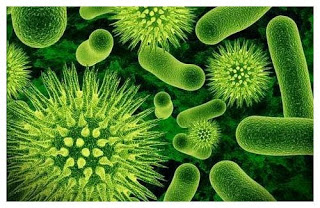| Online: | |
| Visits: | |
| Stories: |
How microbes in the gut influence anxiety, depression
by Carolanne Wright – naturalnews
We may not give much thought to the 100 trillion microbes living within our guts, but new discoveries within psychiatry have found that these organisms can profoundly affect our moods. In fact, psychiatrists are now exploring the possibility of manipulating these microscopic populations with the goal of treating clinical depression and anxiety — all without resorting to potentially harmful pharmaceutical drugs.
The mind-gut connection
The bidirectional link between the emotions and the gut is nothing new. Scientists have long known that the enteric nervous system (ENS) found within the gut is connected to the brain via the vagus nerve, and is so influential that it's often referred to as the “second brain.” When we experience sadness, fear or another emotional state, the gut is affected. And yet, the reverse is also true. When imbalances within the gut are present, such as inflammation or an infection, our emotional state suffers as well. 
Researchers have taken these findings a step further by examining how actual microbes within the gut alter behavior and mood. Premysl Bercik, an associate professor of gastroenterology at McMaster University, is one of the first scientists who made the leap from how microbiota impact gut function to how they shape emotions. Bercik realized that a significant portion of his patients were not only suffering from gastrointestinal maladies, but also substantial depression and anxiety.
Source: http://www.riseearth.com/2014/05/how-microbes-in-gut-influence-anxiety.html




